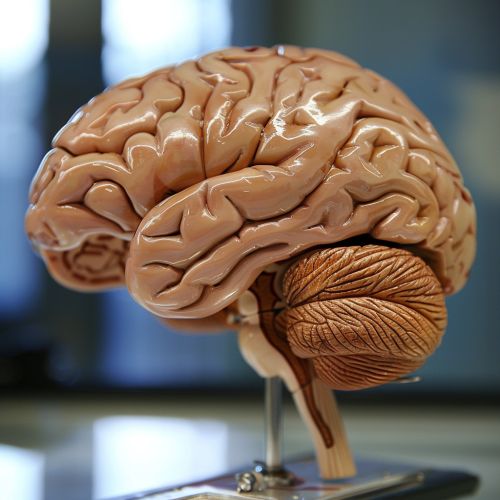Mild cognitive impairment
Overview
Mild cognitive impairment (MCI) is a condition characterized by a slight but noticeable and measurable decline in cognitive abilities, including memory and thinking skills. A person with MCI is at an increased risk of developing Alzheimer's or another type of dementia.


Classification
MCI is often classified into two types: amnestic MCI (aMCI) and non-amnestic MCI (naMCI). aMCI is characterized by frequent memory loss, such as forgetting important information that would normally be remembered, like appointments or conversations. naMCI affects other cognitive skills, such as language (aphasia), attention, or visuospatial skills.
Symptoms
Symptoms of MCI can include frequently losing or misplacing things, difficulty finding words, becoming lost in familiar places, and exhibiting poor judgment or decision-making. It's important to note that these symptoms go beyond what's considered part of normal aging.
Causes and Risk Factors
The exact cause of MCI is unknown, but it's thought to be related to changes in the brain that occur with aging and diseases like Alzheimer's. Risk factors can include being over the age of 65, having a family history of Alzheimer's or another dementia, having certain gene mutations, and conditions like diabetes, hypertension, and hyperlipidemia.
Diagnosis
Diagnosing MCI involves a thorough medical and neuropsychological evaluation, including a detailed history, physical examination, laboratory tests, and cognitive testing. Brain imaging techniques, such as MRI or PET scans, may also be used.
Treatment and Management
There is currently no cure for MCI, but some interventions may help slow cognitive decline. These can include regular physical activity, a healthy diet, mental stimulation, and social engagement. Some medications, such as cholinesterase inhibitors, may also be used off-label in some cases.
Prognosis
The prognosis for individuals with MCI varies. Some people remain stable or return to normal over time, while others progress to dementia. Regular follow-up with a healthcare provider is crucial for monitoring cognitive changes.
Research
Research into MCI is ongoing, with studies focusing on understanding the causes, identifying risk factors, and developing effective treatments. Clinical trials are an essential part of this research, and individuals with MCI may choose to participate.
